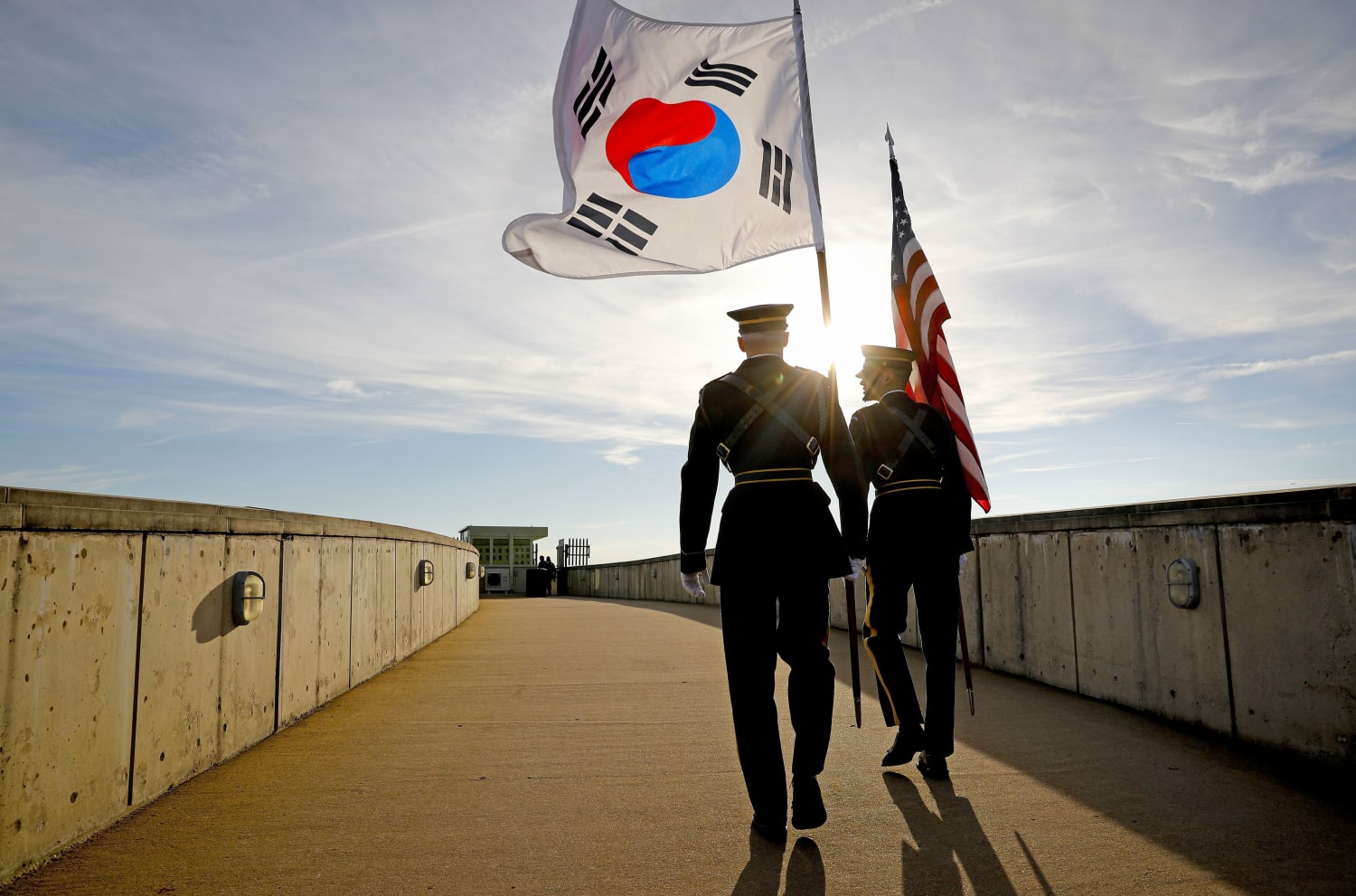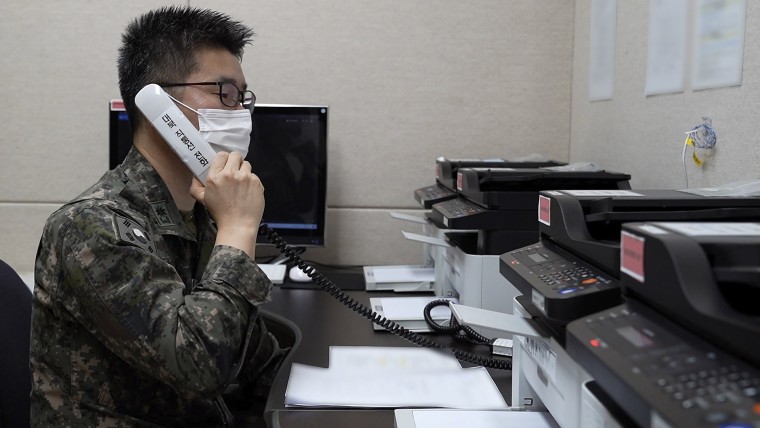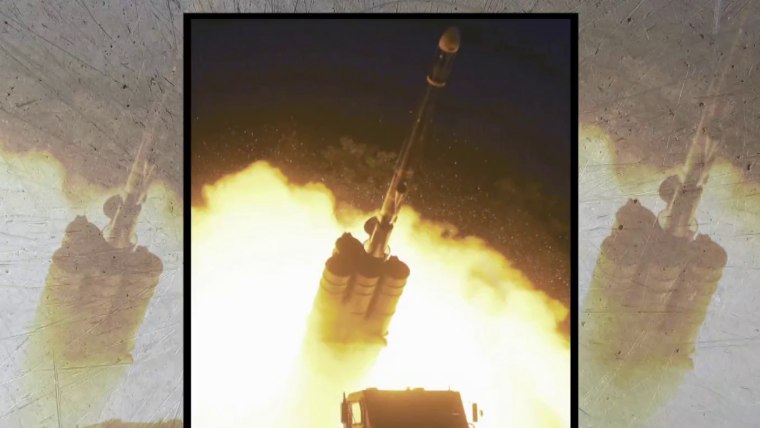The Biden administration’s delay in nominating an ambassador to South Korea is causing tension between the two long-standing allies, according to multiple current and former administration officials.
“There has been a drumbeat about this for the past several months and it is now growing louder,” one former senior administration official said. “It’s becoming an issue.”
“South Korean officials have brought this up multiple times with American officials,” former CIA officer Sue Mi Terry said. “They bring it up in many conversations in every setting.”
“The South Koreans are insulted that no one has been nominated yet, that in fact there isn’t even a name really being rumored for ambassador yet,” one congressional official said.
The absence of a U.S. ambassador in Seoul comes at a critical moment for relations on the Korean Peninsula. South Korea’s President Moon Jae-in said this week in a news conference that both North and South Korea now agree with the U.S. in principle on declaring a formal end to the Korean War, technically in a truce since 1953.
Although the Biden administration hasn’t confirmed its participation in such an agreement, the State Department said this week the U.S. was “committed to achieving lasting peace on the Korean Peninsula through dialogue and diplomacy with the DPRK,” using North Korea’s formal name. The State Department said the U.S. was “prepared to meet without preconditions” and hoped North Korea would “respond positively to our outreach.”
A former White House official pointed to South Korea’s upcoming presidential election in March as another reason it’s an inopportune time to have no ambassador, with South Korea’s future approach to diplomacy with the North hanging in the balance. Current officeholder Moon Jae-in is term-limited.
The South Korean government was dismayed at how Biden’s predecessor, Donald Trump, openly questioned the value of the U.S.-South Korean alliance and the need to retain thousands of U.S. troops in South Korea, breaking with a bipartisan tradition supported by successive U.S. presidents.
Biden’s election had raised hopes among officials in Seoul, as the former vice president had campaigned vowing to repair U.S. alliances and partnerships around the world, including with South Korea. Since then Biden administration officials have repeatedly highlighted the importance of the relationship between the U.S. and South Korea.
Currently the U.S. has an acting ambassador in Seoul, Charge d’Affaires Christopher del Corso.
Adding to the tension is the fact that two of Seoul’s neighbors, Japan and China, do have ambassadors nominated. Biden has had a nominee to serve in Beijing and Tokyo since August, when he nominated veteran diplomat Nicholas Burns as ambassador to China and former Chicago Mayor Rahm Emanuel for Japan, both well-known figures in their own rights whose selection signaled the Biden administration was taking relations with those countries seriously.
“Having [a nominee] in Tokyo and one in Beijing without even a nominee for Seoul is insulting,” a former senior administration official said.
A senior South Korean government official said, “South Korea is not the only nation where the U.S. ambassador has not been appointed or nominated yet and we understand that there are processes for the U.S. government to follow. Just because the U.S. ambassador has been decided to Japan and China does not mean anything more than it is the process.”
“But it would be good to have the new U.S. ambassador to South Korea to be decided soon for practical reasons,” he added.
Asked about the vacancy and the South Koreans’ concerns, a senior Biden administration official said only that there were no personnel announcements to preview.
The South Korean embassy in Washington, D.C., did not immediately respond to a request for comment.
Stalling in Congress, vacancies around the globe
Since they were picked for Japan and China, Emanuel and Burns have joined dozens of other administration choices for ambassadorships and national security posts whose nominations have been stalled in the Senate. A handful of Republican senators, primarily Ted Cruz of Texas and Josh Hawley of Missouri, have held up almost all Biden picks, using procedural delay tactics, in an effort to force Biden’s hand on foreign policy issues such as China and Russia’s Nord Stream 2 pipeline. Marco Rubio of Florida also has demanded a roll-call vote on Burns over China policy.
Secretary of State Antony Blinken said in Jakarta this week that the U.S. is waiting for ambassadors to be confirmed “in too many countries.”
“As of last week, only 16 percent of our ambassadors have been confirmed. At this point in the last three administrations, the number was between 70 and 90 percent. Crucial posts, including Beijing, are still vacant.”
“This is a huge problem,” said Blinken. “On virtually every challenge we face, including dealing with Russia, with China, with non-state actors, we’re hampered by the fact that we don’t have our full national security and foreign policy team on the field. … For the sake of our national security, the Senate must act.”
Despite historically low confirmation rates for those who have been submitted to Congress, however, it is also noteworthy that the Biden administration has yet to announce nominees for nearly half of the current 186 ambassadorial vacancies. That includes the top diplomatic posts in countries that play a critical role in U.S. foreign policy such as the U.K., Australia and Saudi Arabia.
Though any nominee for South Korea would likely face delays by Republicans, having a nominee would go a long way toward building confidence and showing the administration’s commitment to the South Koreans, one congressional official said.
Sue Mi Terry, now the director of the Wilson Center’s Hyundai Motor-Korea Foundation Center for Korean History and Public Policy, agrees. “Alliance management is important. At least name somebody. It’s one thing for nominations to be held up, but at least name somebody to show commitment to the alliance.”
“The Koreans always look to their neighbors China and Japan for status of ambassadors. If Burns and Emanuel get confirmed, the frustration with the U.S. will get worse,” one former senior administration official said.
The failure to nominate an ambassador to South Korea has come as a surprise and a disappointment, according to former administration officials, but it does not signal an end to the alliance.
“The South Koreans think the U.S. is not paying attention to them,” one former senior administration official said. “They’re not happy with things, but it’s not going to break the relationship.”
Source: | This article originally belongs to Nbcnews.com












